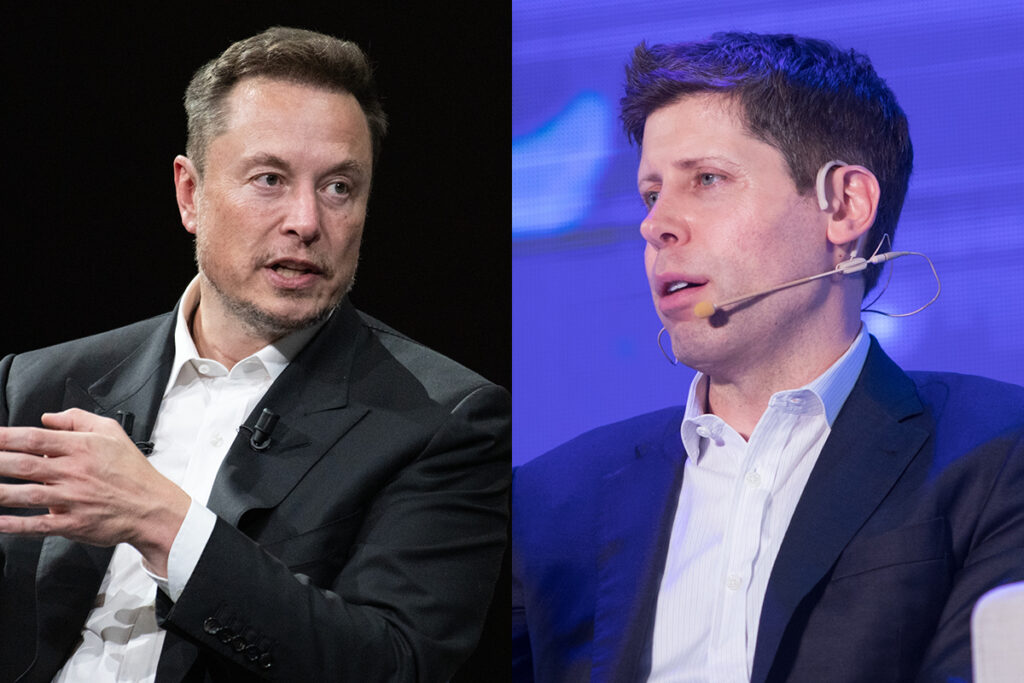In a move that could reshape the artificial intelligence landscape, Elon Musk is leading a group of investors in an attempt to acquire OpenAI, the parent company of ChatGPT, for $97.4 billion. The bid, if successful, could give Musk majority control over one of the most influential AI companies in the world, setting the stage for a major shift in the industry.
A Long-Standing Feud
Musk’s interest in OpenAI is not new. As a co-founder of the company in 2015, he played a significant role in its early development before leaving in 2018 due to internal disagreements over its direction. OpenAI was initially founded with the goal of ensuring that artificial general intelligence (AGI) would benefit humanity, with a nonprofit governing structure overseeing its operations. However, Musk has been a vocal critic of OpenAI’s shift toward a for-profit model, arguing that the company has strayed from its founding mission.
His ongoing dispute with OpenAI CEO Sam Altman has escalated in recent years. Musk has accused the company of prioritizing profits over safety and transparency, a claim that has been at the center of multiple legal battles. In June 2024, Musk filed a lawsuit against OpenAI but later dropped it after internal company emails surfaced, revealing that he had previously acknowledged the necessity of revenue generation to support AI development. In August 2024, he filed a second lawsuit, accusing OpenAI of recklessly pursuing AGI for financial gain and engaging in racketeering.
OpenAI’s Evolution and Business Strategy
Since Musk’s departure, OpenAI has undergone significant changes under Sam Altman’s leadership. The company transitioned from an open-source, nonprofit-driven organization to a hybrid model, where a nonprofit oversees OpenAI LP, a for-profit entity. This shift has attracted major investment, notably from Microsoft and venture capital firm Thrive Capital, driving OpenAI’s valuation to approximately $100 billion.
The company’s rapid expansion has come with challenges. Investors have pushed for aggressive innovation, leading to the release of early-stage AI products. The strategy, in line with Silicon Valley’s “move fast and break things” approach, has raised concerns about AI safety and ethics. Critics have argued that OpenAI’s technology, capable of mimicking human behavior and speech with remarkable accuracy, poses risks if not carefully managed.
A Takeover Battle with Industry-Wide Implications
Musk’s proposed acquisition could mark a turning point for OpenAI. If successful, it would bring the company under Musk’s control, aligning it with his own AI venture, X.AI. This could create a direct competitor to industry giants like Google DeepMind and Microsoft-backed OpenAI itself.
Investors backing Musk’s bid have argued that OpenAI should return to its original mission of being an open-source, safety-focused AI research organization. They have framed the acquisition as an effort to restore control over what they consider the most transformative technology of the era.
However, resistance to the takeover is strong. OpenAI’s leadership, including Sam Altman, has dismissed the offer. The company has maintained its stance that its for-profit shift was necessary to secure funding for large-scale AI research and development.
Boardroom Turmoil and Unfinished Legal Battles
OpenAI has already experienced significant boardroom drama in recent years. In late 2023, Altman was abruptly fired by the OpenAI board, only to be reinstated shortly after following backlash from employees and investors. The incident highlighted internal conflicts over the company’s direction, particularly regarding concerns that OpenAI was moving too fast without sufficient safeguards. The board has since been reshaped, with former directors who opposed the company’s commercialization strategy stepping down.
Musk’s renewed interest in OpenAI has reignited tensions from his earlier departure. OpenAI has countered Musk’s legal claims by suggesting that his opposition is rooted in personal frustration. The company has pointed out that Musk attempted to acquire OpenAI for Tesla in 2018, but after failing to convince the other co-founders, he distanced himself from the organization.
The Future of OpenAI and AI Governance
With Musk’s acquisition bid now public, the future of OpenAI remains uncertain. If Musk succeeds, OpenAI could undergo significant structural and strategic changes, possibly shifting back toward its original nonprofit ambitions. If the bid is rejected, the company is likely to continue its aggressive push toward commercialization, backed by deep-pocketed investors eager for returns.
The outcome of this high-profile battle could have far-reaching implications for the AI industry, influencing how AI companies balance profit, innovation, and ethical concerns. With Musk’s legal challenges still in play and OpenAI’s leadership firmly resisting external control, the fight over the future of AI governance is far from over.


